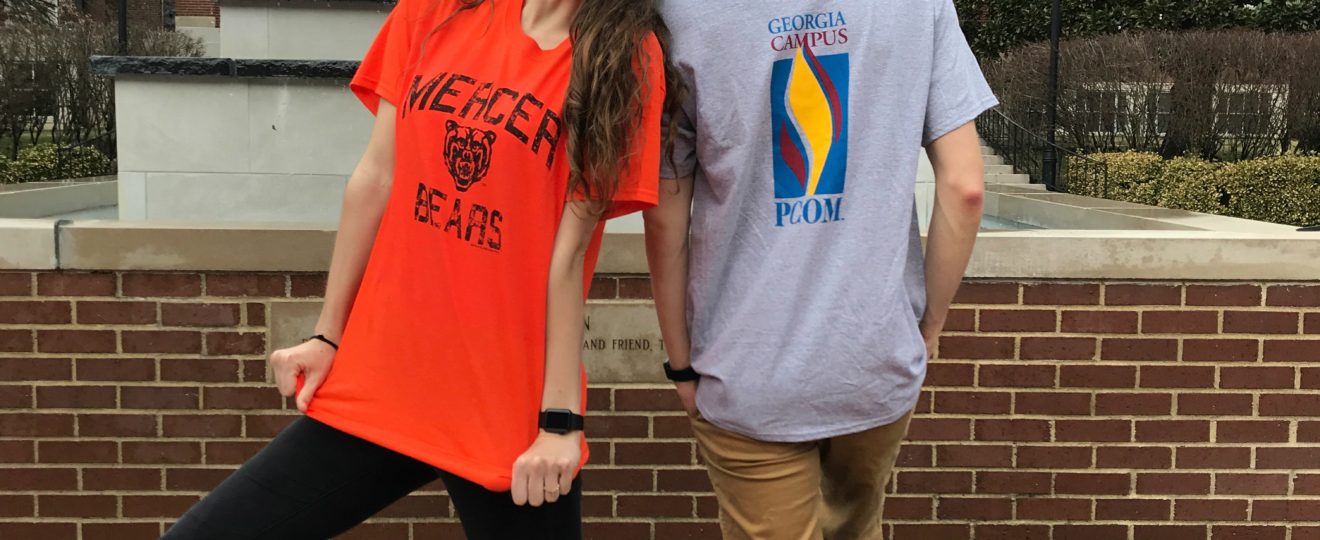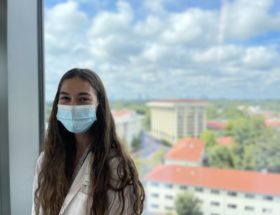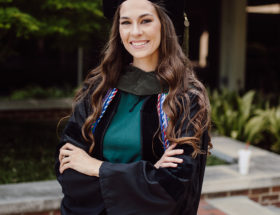My husband, Brandon, is currently in his 3rd year of medical school and I am in my 3rd year of pharmacy school. It has been really wonderful to experience professional school at the same time, and it has been interesting to compare medical and pharmacy school! So, without further ado, the top 10 differences and similarities between medical school vs. pharmacy school! (*Disclaimer: Some of these are specific to our experiences at PCOM & Mercer)
- Both schools are 4 years long and they both result in a doctorate degree, either Pharm.D. for me or M.D. or D.O. for medical school.
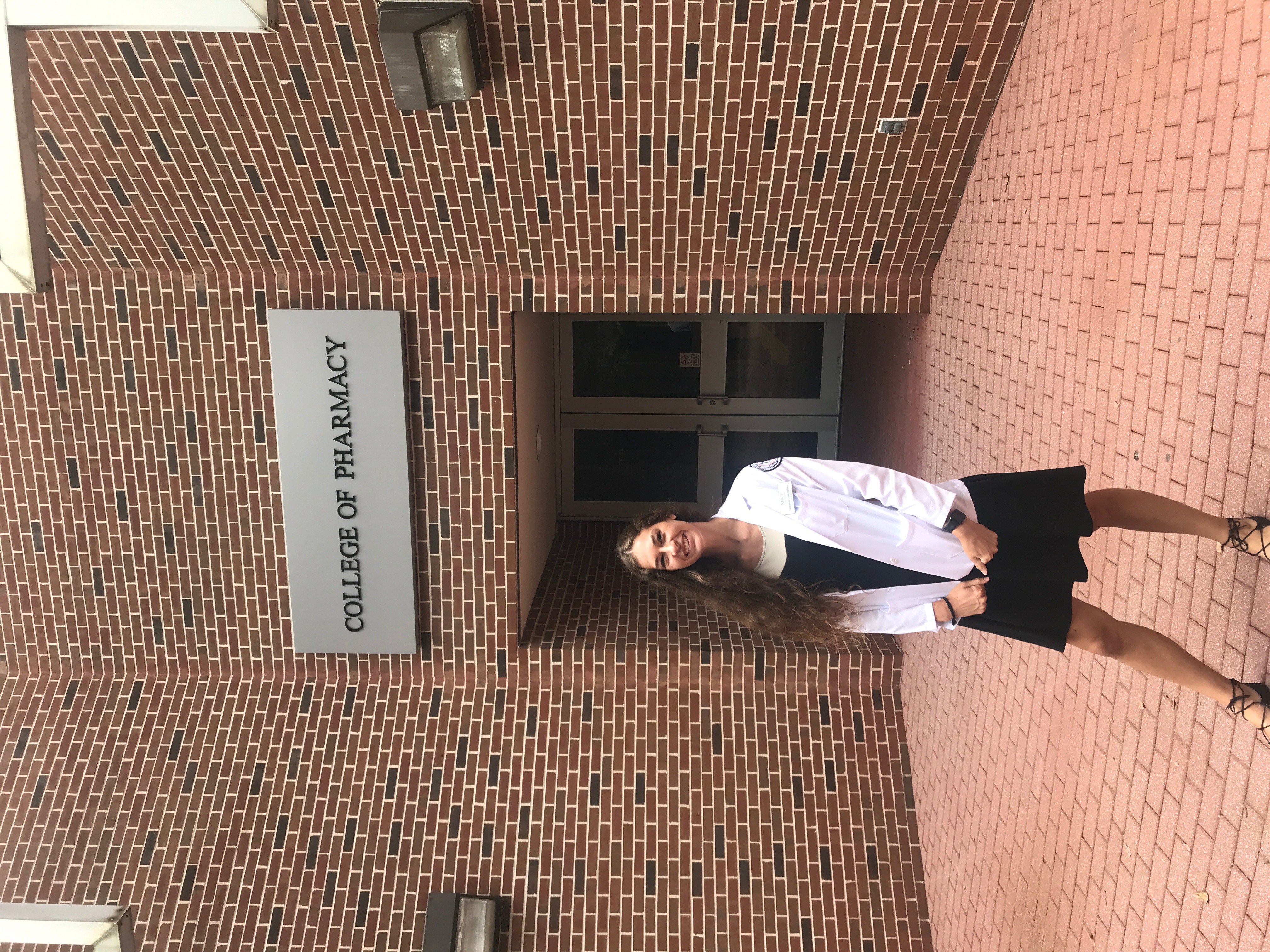
My white coat ceremony 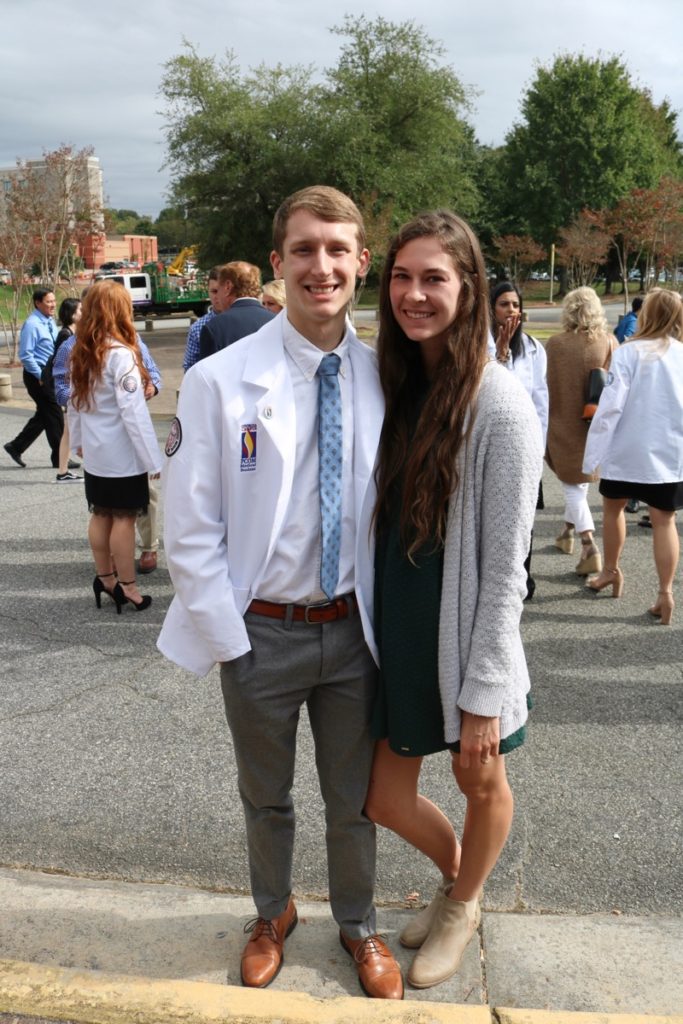
Brandon’s white coat ceremony
2. The amount of clinical vs didactic curriculum. In pharmacy school we have 3 years of didactic curriculum (time in the classroom taking classes and lots of tests) and 1 year of clinical rotations which take place in an actual practice setting (typically a hospital, clinic, or community pharmacy). In medical school, there are traditionally 2 years of didactic curriculum and 2 years of clinical rotations. This schedule does vary some between different medical and pharmacy schools.
3. Clinical rotation schedule. Brandon’s rotations are all 4 weeks long and span 2 full years, whereas I only have 9 rotations lasting 5 weeks each over my last year of school. We also have different requirements for the rotations we have to take. At Mercer we have 5 required rotations in specific practice areas plus 3 electives. For Brandon in medical school, he has a year of required rotations during his 3rd year and then a year of elective rotations for his 4th year which can be used as “interviews” for residency placement.
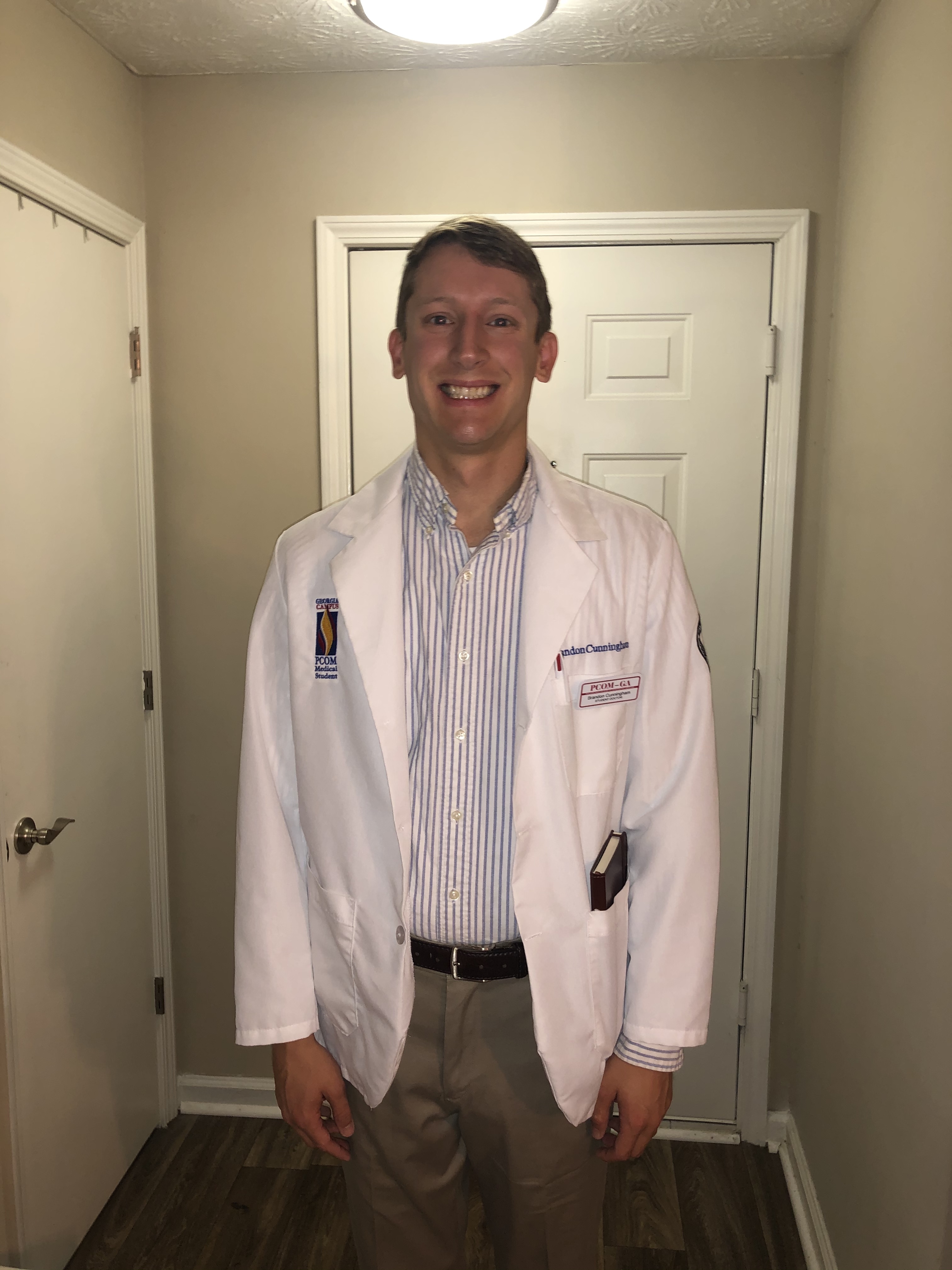
Brandon’s 1st day of rotations 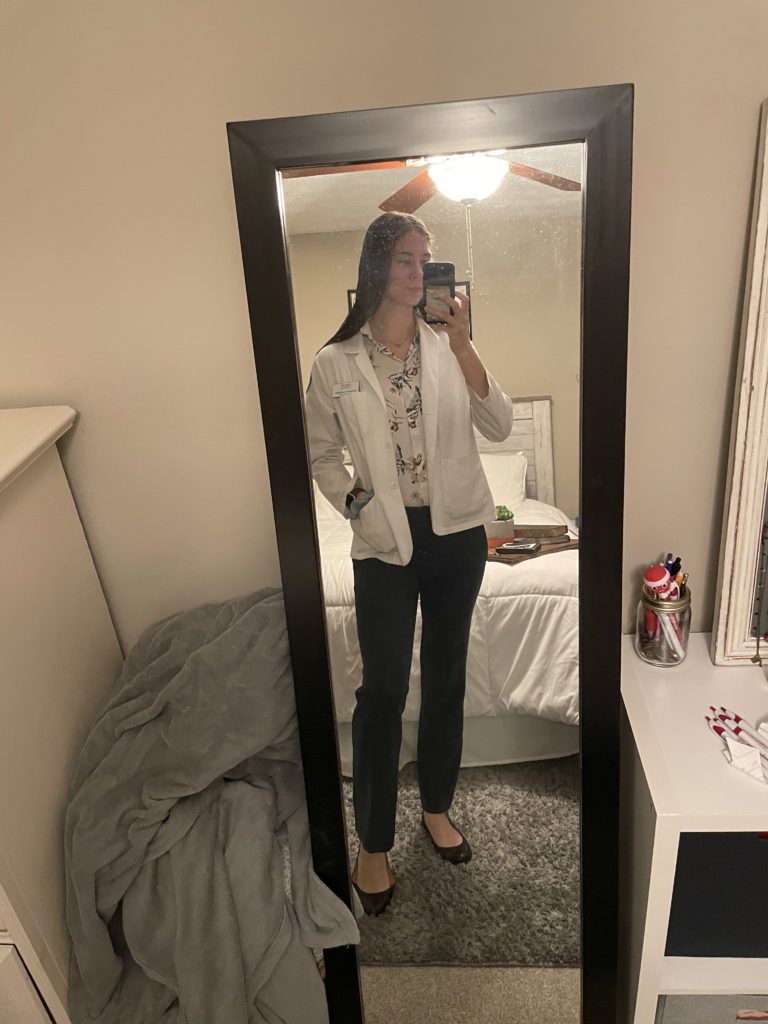
My 1st day of Grady rotations
4. Our didactic curriculum and disease state modules. What we cover and focus on is different. Brandon’s curriculum is much more focused on diagnostic criteria and knowing all the rare differentials that are possible. Pharmacy school curriculum is less about diagnostics and much more about treatment guidelines, specifically medications. We learn detailed chemistry and mechanisms of action for all the drugs that are included in the treatment algorithms.
5. Residency. After the 4 years of school, medical students then go on to complete a residency of a minimum of 3 years before they can practice independently. This is specific to their practice area and may be followed by a 1–2-year fellowship for further specialization. In pharmacy, residencies are becoming more and more common, but are not required to be able to practice. Most are very generalized in the first year, with the option to continue to a specialized second year.
6. Admission to school. Pharmacy school typically requires students take the PCAT, participate in an in-person interview. Many schools, including Mercer, no longer require a PCAT. We also do not require an undergraduate bachelor’s degree. Most schools require about 60 hours in prerequisites. Medical school requires the MCAT (which is much more difficult and extensive than the PCAT), and also has an in-person interview component. Bachelor’s degrees are required for medical school, and overall medical school is much more competitive to get into than pharmacy school.
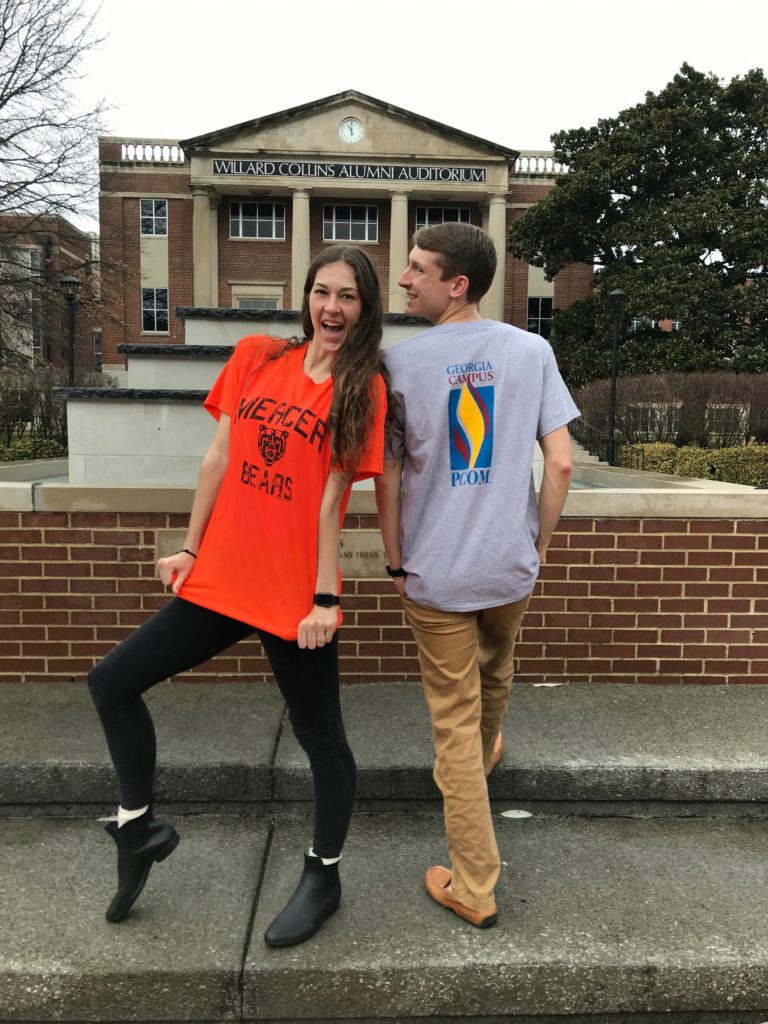
7. Intensity. From our personal experience, medical school is more intense in difficulty than pharmacy school. The volume of information is greater for medical school, and there are required national tests during school that students have to take which adds stress (STEP 1 during the Summer after the second year of school).
8. Schedule. Brandon has been in quite a bit more hours of class per day than I have during the didactic curriculum years. Mercer’s curriculum has changed recently so the incoming classes are in class for full days as opposed to the 2-3 hours daily that I have been in class throughout my 3 years of classroom education. Our rotation schedule should be pretty similar as far as time commitment, however.
9. Summers & breaks. We both have had both Summers off so far, though Brandon’s most recent Summer being free from in person commitments was somewhat due to COVID-19. At Mercer we have almost 4 months off in the Summer and about 6 weeks off at Christmas, plus a week of Spring break. At PCOM, they are on a different semester schedule, so Brandon has had shorter Summers (end of May to early August) and only 1-2 weeks at Christmas time.
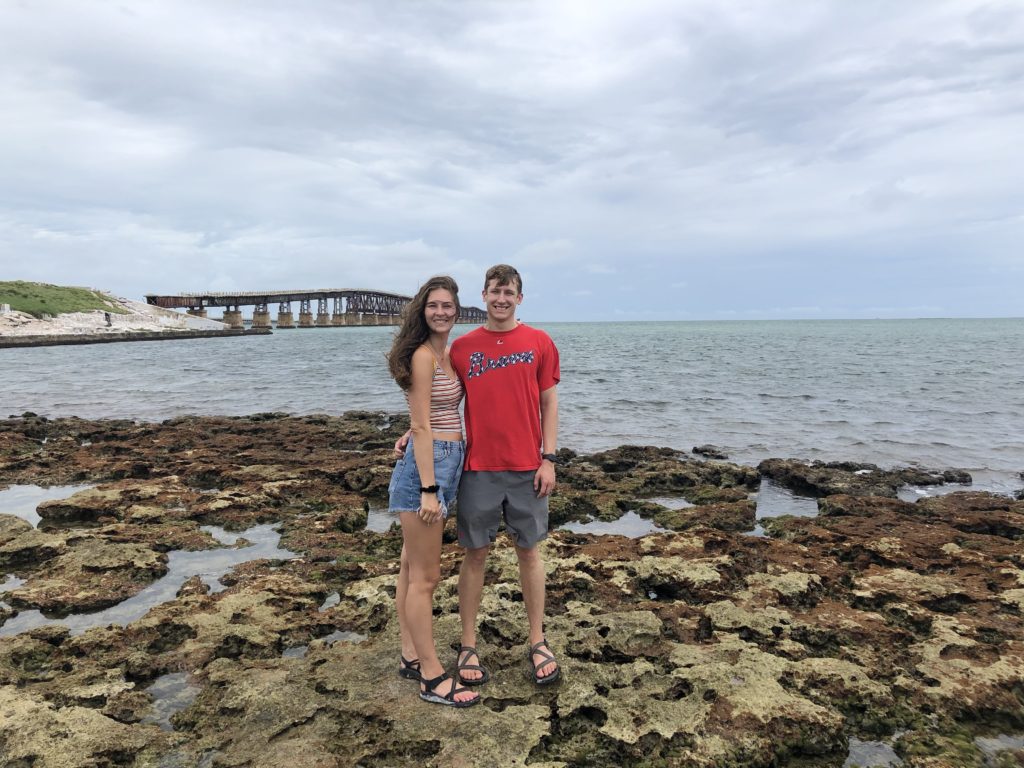
10. Labs & clinical experience. We both have had hands on lab experience throughout school. Brandon is in osteopathic medical school, which means he spent a lot of time learning OMM, plus typical physical exams. In pharmacy school, our labs have focused on compounding, filling prescriptions, taking blood pressure, glucose/cholesterol, giving vaccinations, and counseling patients.
